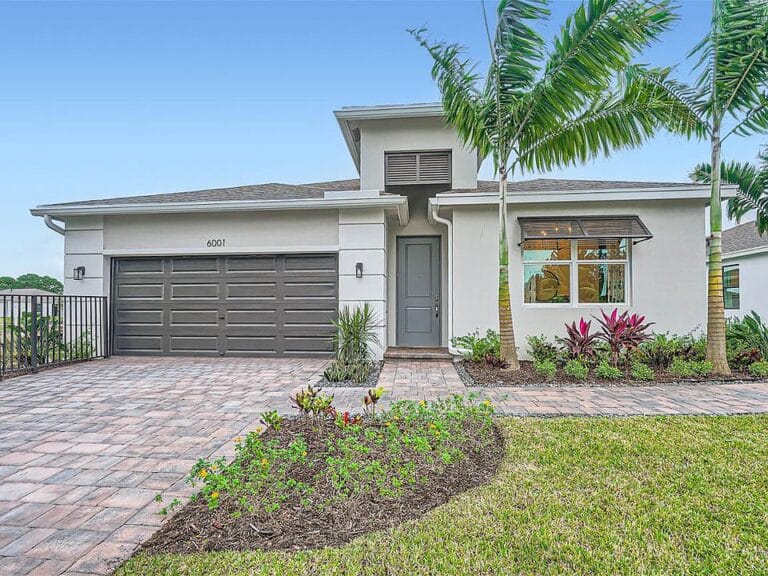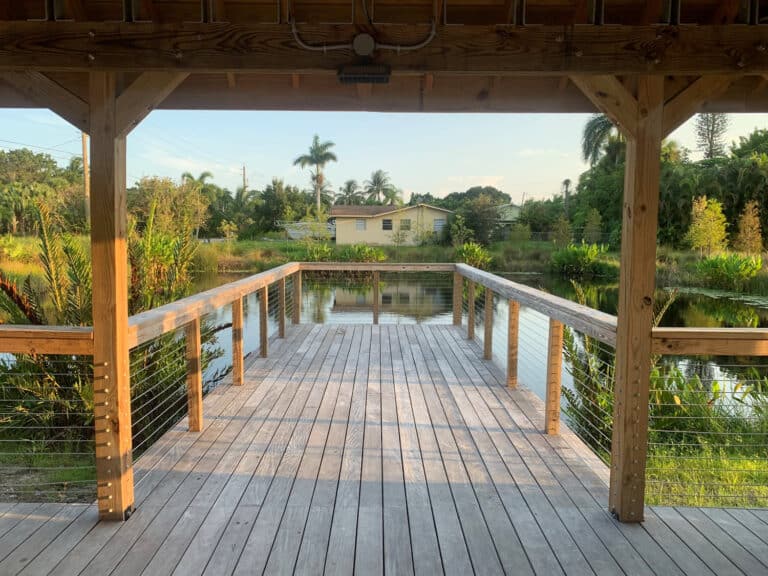When you decide to build a new home, the type of house you want influences what type of building company you select. Home building firms can have from one to hundreds of employees. Some buyers prefer the security a large corporate establishment represents. Others prefer the personal attention and family feeling of smaller companies. Careful consideration in choosing a builder can assure that the amount of time, emotion and money you will invest in a new home will result in a comfortable home that you can enjoy for years.
There are basically three types of builders: Production Builders, Semi-Custom Builders, and Custom Builders. Choosing a builder in each category has its advantages and disadvantages.
Production Builders are organized for higher volume construction. They have standardized model homes to tour and study the quality of the builder’s work. Having a standardized list of choices for floor coverings, tiles, countertops, light fixtures, cabinets and exterior finishes means it’s faster and easier to make selections. The cost of your selections is known quickly and can make it easier to finalize your decision. Through repetition, the production builder has worked any bugs out of floor plans and the time to build is usually shorter. Higher volume work, such as a subdivision, and the advantage in scheduling trade contractors can result in significant cost savings. A disadvantage to choosing a production builder is that any change to the floor plan that alters the structural elements, such as foundation walls, requires reengineering and resubmission of plans to the building department. These expensive and time-consuming steps disrupt the momentum of high-volume construction.
Semi-Custom Builders work with existing plans, but are flexible regarding changes. Some home buyers feel more comfortable starting with a plan, rather than developing their own. The disadvantage to making changes to an existing floor plan is that the fine-tuning takes time and money. When floor plans are changed, the economies of large-volume work are lost, resulting in higher prices.
Custom Builders specialize in starting with a blank sheet of paper and creating a unique home. They have experience with a wide variety of finishes, unusual treatments and design details. Because each house is one-of-a-kind, home buyers can expect significant initial investment in time and dollars for design development and the creation of working blueprints and specifications.



There are several different sources for finding the builder. Local home builder associations are professional organizations that can provide lists of member companies. Call (your association) for a list of builders (and any other services your association offers consumers). Potential home buyers can check newspaper advertising and real estate agents, as well as driving around and looking at new homes. Moving a long distance from your current residence makes the task more challenging. A visit to your new city where you can use the methods described above will probably be necessary.
After you get a general idea of the available builders comes the important task of narrowing your list of potential builders down to one. Look closely at each builder’s finished work and their work in progress. Notice the quality of site management. Are the homes and materials reasonably protected form weather, traffic damage and theft?
When you meet the builder, ask about things that are important to you and get a sense of the company’s personality. You will be spending considerable time with the builder and his employees; you will want to find a company with whom you are compatible. Ask to meet the person who would be in charge of building your home. What experience does he or she have?
Many builders today provide a homeowner manual that guides buyers through the process and serves as a reference after move-in. Find out whom you would contact with questions. Are there routine points when you are invited to tour your home and have the company’s undivided attention to discuss questions? What is the policy on change orders? Ask to see the contract documents and warranty, and take blank copies home. Pay close attention to sample specifications and written warranty standards.
Throughout the selection stage, your explorations and conversations will no doubt lead you to the same names again and again. Comparing one detail after the next, you will probably keep coming back to the same builder.
When the price range is in line with your budget, and you feel more excited than ever to get started, you have probably found the right builder.
For more information contact the Florida Home Builders Association at http://www.fhba.com.


Understanding the natural resources that are potentially present on a property before purchasing or building is just as important as selecting the right builder. The presence of several natural resources on your property can greatly affect the feasibility, cost, and sustainability of your construction project:
– Endangered and threatened wildlife species – Gopher tortoises, Florida scrub jays, sandhill cranes, crested caracara… the temporary or permanent presence of any of these beautiful creatures on your property may require additional permitting with wildlife agencies and/or unforeseen delays in your project.
– Native uplands – Depending on the size of your lot and its location in incorporated or unincorporated areas of the County, you may be subject to native upland preservation requirements.
– Wetlands – Martin County has a no wetland impact policy. Some of these wetland areas are obvious to anyone but some are dry for the most part of the year and require a rigorous assessment to be identified, and to eliminate and reduce wetland impacts.
Lots available from production builders (e.g. in a newly established subdivision) typically offer more predictability as the developer of the lot(s) or subdivision has previously taken care of environmental concerns (such as wetland avoidance and upland preservation, and protected wildlife species relocation) and those lots are typically ready to build. Individual residential lots in established neighborhoods or platted lots in more rural areas where you are likely to use a semi-custom or custom homebuilder may contain protected natural resources that are not evident to the untrained eye.
Certain land characteristics may require additional permits, environmental assessments, or infrastructure investments that could influence your decision-making process. By conducting a thorough evaluation of your land – including consulting with local environmental professionals and reviewing environmental rules and regulations – home buyers and developers can make informed choices that align with their long-term goals. Just as careful builder selection ensures a smooth construction process, knowing your land’s natural resources ensures a sound foundation that supports both your vision and the environment.
You would likely not buy a home without having it inspected by a qualified home inspector first, so why shouldn’t you get your land assessed by an environmental consultant before buying or building it?
For those looking at land in unincorporated areas of Martin County please refer to the Martin County Growth Management Environmental Division FAQs at https://www.martin.fl.us/environmental-division-faqs